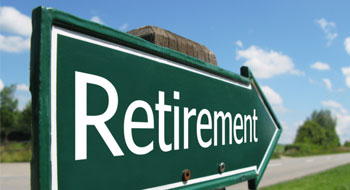
CARP appears to be getting little industry support in its resistance to the federal government’s raising OAS eligibility from age 65 to age 67.
In an open letter to MPs, CARP asked to separate OAS changes from the rest of the budget, demanding a wider debate on the issue.
“CARP members would be shattered to learn that such a fundamental part of our social safety net was rushed through Parliament on the strength of the government’s Parliamentary majority alone, without adequate opportunity for full debate,” said Susan Eng, vice-president, advocacy, CARP.
Responding to CARP’s assertions, Curt Hanselmann, a financial advisor in Calgary, argues most major nations have, or will soon, raise their retirement age. And Canada shouldn’t be any different.
“Other countries, including our closest allies, have already made the leap,” he said. “The numbers bear out the unsustainability of programs where the length of the benefit period is rapidly approaching that of the funding period.”
As for debate, he said this issue has been around for years.
“It’s been on the table for two months since the budget was proposed,” he added. “A protracted debate in the House, while making for good theatrics, would hardly change the facts or the outcome.”
With the new rule’s implementation still 10 years away, the electorate will have plenty of opportunity to judge the Conservatives on this issue, he added.
CARP, on the other hand, is pressing for “a full and complete debate on the OAS changes which represent a fundamental shift in Canada’s social safety net at a time when Canadians of all ages are concerned about their financial and retirement prospects.”
Hanselmann agrees, but only to a certain extent, saying no one beyond their early 50’s will be affected.
“We have the better part of 15 years to prepare for a gross retirement income ‘shortfall’ of approximately $13,000 maximum in today’s dollars,” he said. “If I save approximately $50 monthly in a GIC, I will make up for it.”
That amount, he added, is even lower for younger folks.
CARP also recommends the government look at potential savings from healthcare reform or reduced military spending once the Afghan mission is complete instead of raising the OAS eligibility age.
Hanselmann argues healthcare reform is about better outcomes, and highly unlikely to result in savings.
“Our population is getting older and the demands on healthcare are increasing rapidly,” he said. “Besides, any savings realized there, or from reduced military or any other spending cuts, must be directed to paying down our collective debt. That is a legacy none of us should want to leave to our grandchildren.”
In an open letter to CARP, Hanselmann said he was merely a citizen “who is sick and tired of hearing special interest groups whining and complaining because government makes a good, sound decision that happens to take a dollar away from their handouts.”
Governments around the world are often loath to make unpopular decisions. Considering that, Hanselmann points out, the Canadian government has shown the political will to make a decision that will be temporarily unpopular but long-term beneficial.
“My hat goes off to the government that has the guts to get it done,” he said.

 New OAS eligibility is plenty to CARP about
New OAS eligibility is plenty to CARP about OAS changes following global trend
OAS changes following global trend OAS and age: When are we old?
OAS and age: When are we old?